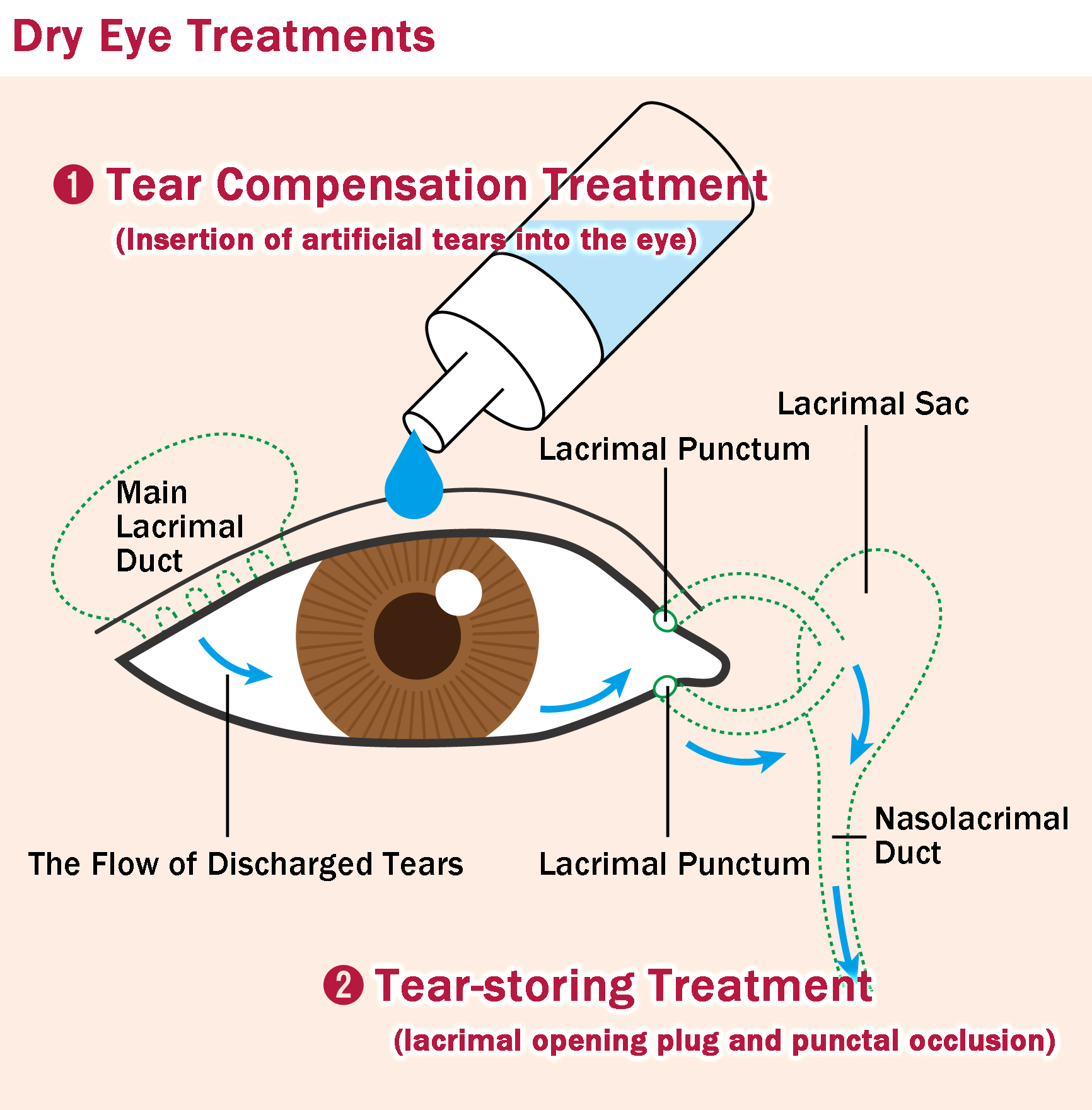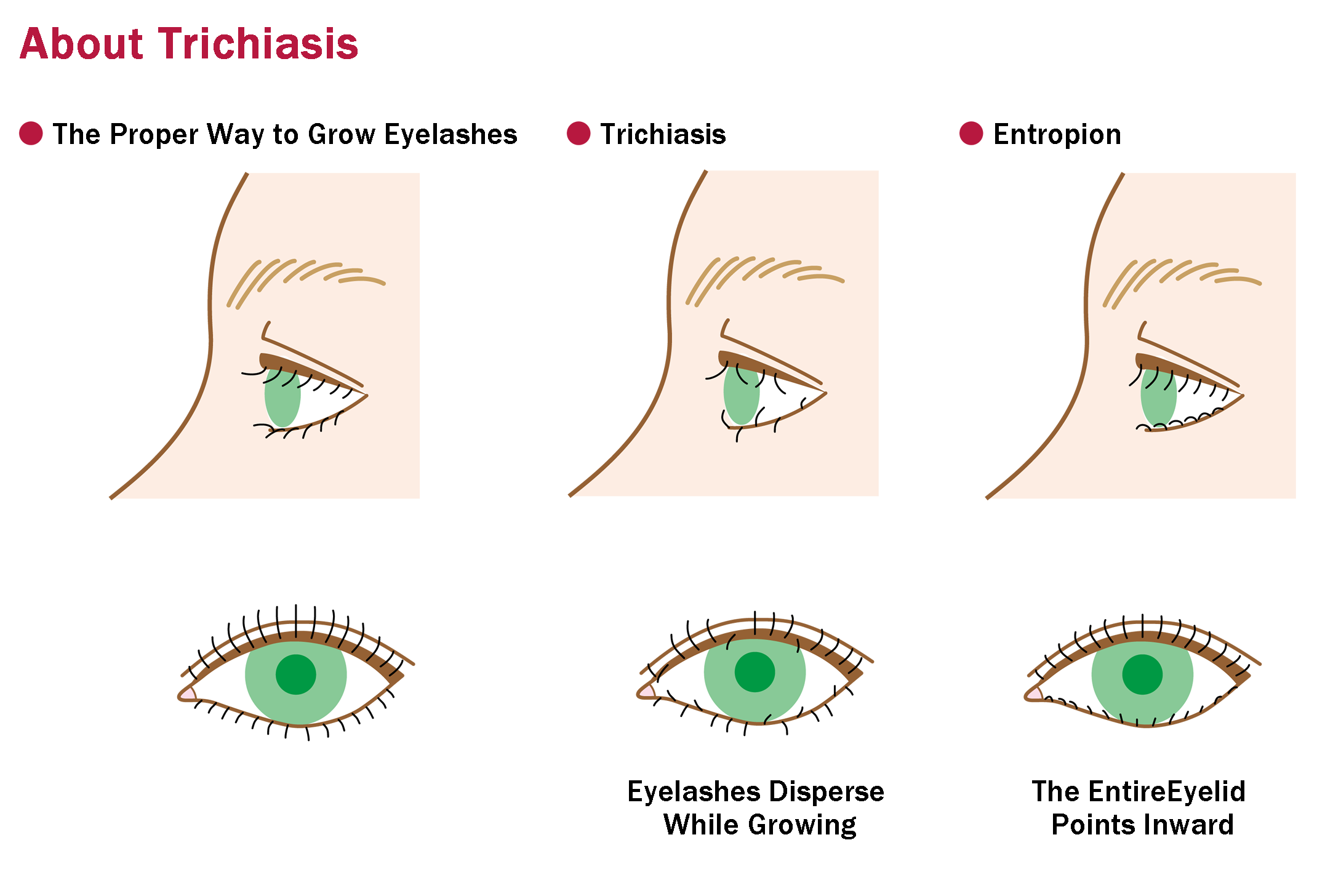Eye Treatment Methods
About 70% of patients with SJS/TEN will have eye disorders concomitantly in the acute phase with rash and erosion. (The remaining approximately 30% will have no eye complication and thus need no eye treatment.)
You need to have your eyes examined by an ophthalmologist to see if you have any eye complications.
Acute Phase
You will have your eye surface attacked and experience severe inflammation. You will receive steroid eye drops to alleviate inflammation on the surface of your eyes. You will also receive antibiotic eye drops to prevent infection.
Systemic treatment includes the following options, which are used in combination in severe cases.
(1) Steroid Pulse Therapy
(2) Intravenous Immunoglobulin (IVIG)
(3) Plasma exchange therapy
Chronic Phase
Dry Eye
You will receive eye drops of artificial tears, which have similar components to those of tears, and physiological saline. Artificial tears that do not contain any preservatives can be used safely. Besides, moisturizing eye drops (hyaluronic acid) and anti-inflammatory eye drops (rebamipide) will be used to alleviate dryness and friction on the surface of the eyes.
Methods to occlude the outlet of tears called ‘lacrimal punctum’ (punctal plugging and punctal occlusion) have an effect to increase tear volume.

Ingrowing eyelashes
You will need to visit an ophthalmologist about once in two to four weeks to have your eyelashes pulled out, which will be the surest way. Surgery may work depending on the condition of your ingrowing eyelashes.

Visual Impairment
Unfortunately, we have no way to regain the original eyesight after experiencing visual impairment. However, “cultivated autologous oral mucosal epithelial cell sheet transplantation” has been developed as a new treatment method to improve visual acuity.
In July 2013, cultivated autologous oral mucosal epithelial cell sheet transplantation was approved as Advanced Medical Care B for the indications of severe visual impairment and intractable epithelial defect caused by SJS or TEN.
If you want to know further, see "Learn more about New Treatments." and "Lectures."